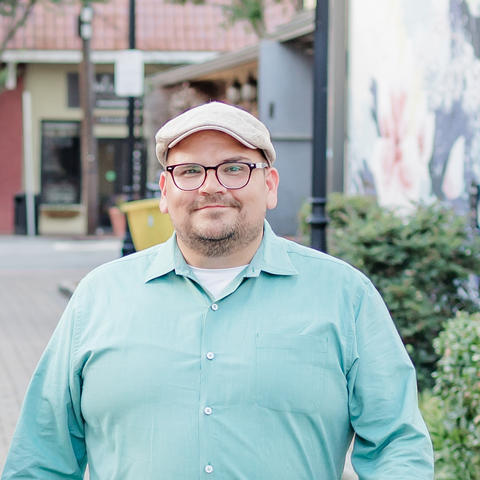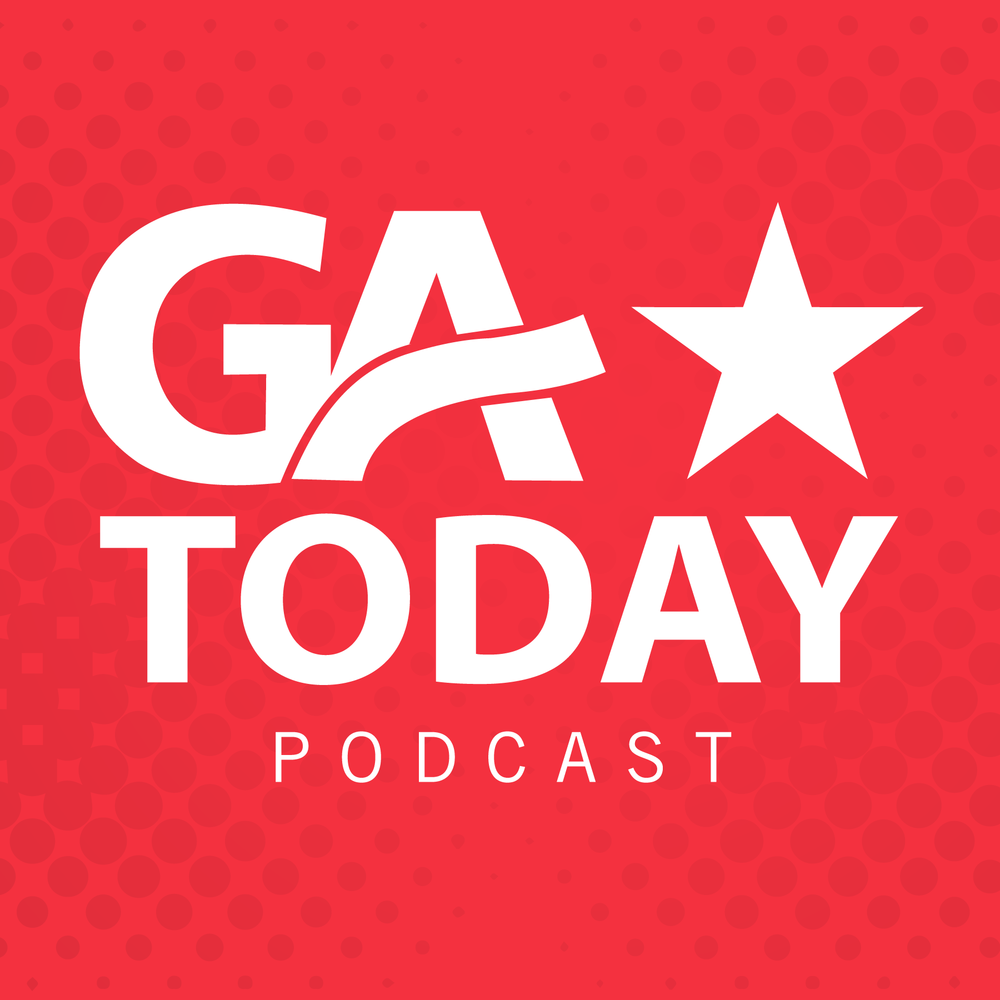
Section Branding
Header Content
Georgia Today: Murder charges for Georgia mother, Savannah rewriting racist past, holiday traveling
Primary Content
On the Friday Dec. 16 edition of Georgia Today: Murder charges for the mother of the toddler found in a landfill, one of Savannah’s iconic town squares may be taking a big step to rewrite its racist past, and 5.2 million people will travel through ATL this holiday season.

TRANSCRIPT:
Peter Biello: Welcome to the new Georgia Today podcast from GPB News. Today is Friday, December 16th. I'm Peter Biello. Coming up on today's episode, the mother of a toddler found dead in a landfill is facing charges. One of Savannah's iconic town squares may be taking a big step to rewrite its racist past. And today is expected to be the busiest travel day of the holiday season at Atlanta Hartsfield-Jackson International Airport. We've got some tips to help make your trip a little more bearable. These stories and more coming up on Georgia Today.
Story 1
Peter Biello: A grand jury in Savannah's Chatham County has returned a 19-count indictment against the mother of a toddler found dead in a landfill in October. Leilani Simon has been formally charged with murder and other crimes, including lying to police when she denied meeting a drug dealer and using drugs the night before the death of her son, 20-month-old Quinton Simon.
Story 2
Peter Biello: The Georgia Department of Human Services and Department of Community Health, are asking low-income families enrolled in Medicaid and Peach Care for kids to update their contact information in the state's public health insurance portal, Georgia Gateway. If they don't, they could lose their coverage next year. GPB's Sofi Gratas explains.
Sofi Gratas: For just over two years, enrollees in Medicaid and Peach Care for Kids have had uninterrupted access to affordable health care, regardless of changes in eligibility. That's because of the ongoing federal COVID-19 public health emergency. But a likely end to the emergency designation next year means 2.6 million adults and children in Georgia will be reevaluated for the first time since the pandemic, and thousands might experience coverage gaps, says Laura Colbert, director of Georgians for a Healthy Future.
Laura Colbert: Often Medicaid members, because they are in low-income families, they tend to be harder to reach because they're busy, because they live in rural areas, because they move more often.
Sofi Gratas: Colbert says low-income adults are the most at risk. For GPB News, I'm Sofi Gratas in Macon.
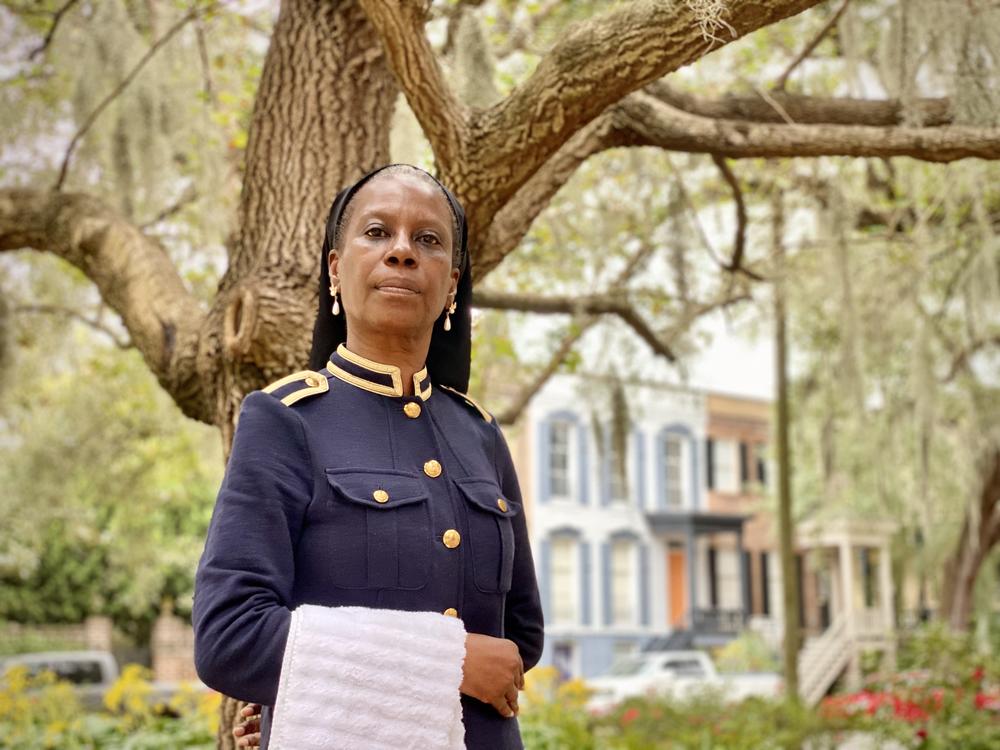
Story 3
Peter Biello: In the years leading up to the Civil War, John C. Calhoun campaigned heavily in the U.S. Senate for the expansion of slavery. Shortly after he died, the city of Savannah named one of its iconic public squares after Calhoun. Fast forward more than 170 years later, and Calhoun's name is now gone from that square after council members voted in November to remove his name. A frontrunner to succeed him is Susie King Taylor, a Black nurse who served alongside the union during the Civil War. One of the local activists leading the renaming effort is Rozz Rouse. She spoke with GPB's Benjamin Payne at the very square that may soon become Taylor Square.
Benjamin Payne: Now, before I get into my interview with Rouse, it's important to explain that these small squares are a big part of Savannah's very identity. For example, in Sen. Raphael Warnock's speech following his victory in one of the most closely watched political races in living memory, he gave a shout out to the squares.
Sen. Raphael Warnock: I am a proud son of Savannah, Georgia, a coastal city known for its verdant town squares and its cobblestone streets.
Benjamin Payne: It's not just Savannah natives who cherish the squares. Tourists do, too. They flock in droves to Chippewa Square, where one of the most iconic scenes in movie history was filmed.
Forrest Gump: My mom always said life was like a box of chocolates. You never know what you're going to get.
Benjamin Payne: That, of course, was from the movie Forrest Gump. The bench where he delivered that famous line is no longer at Chippewa Square, but the picturesque scenery sure is, as it is at all of Savannah's squares, including the one that has no name, which until recently was called Calhoun Square. That's where I met activist Rozz Rouse to ask her about the woman she'd like to see become its namesake.
You used to call your group the Coalition to Rename Calhoun Square. But now that the Savannah City Council has removed the Calhoun Square name, I noticed you've begun referring to your group as the Coalition to Name Taylor Square. And of course, that refers to Susie King Taylor. Tell me about who Susie King Taylor was, what she did and what she stood for.
Rozz Rouse: Susie King Taylor. She was a native of Liberty County, around 35 miles from Savannah, but she came to Savannah around age 7. Her grandmother, Dollie Reed, who already lived here in Savannah, wanted her granddaughter to have an education. But of course, African-Americans — enslaved people — were not allowed to have an education. So she had it set up where her granddaughter could be educated, learn how to read and write. So they called them bucket schools, secret schools. And what they would do was the books and all the materials — newspapers put into buckets as if they were going to do some type of domestic work. So she actually learned how to read and write around age 7 here in Savannah. So this was like her beloved second home. And as a young teenage girl, she, along with her family members, uncles and cousins, they actually went to South Carolina. She actually was part of the Union soldiers up into the Civil War around 1862. She helped to take care of the sick and dying soldiers. She taught those soldiers how to read and write. So she's like a local heroine that I want to world to know who she was. And she made her mark, not just as a Union soldier nurse, also a teacher. She worked as a laundress. She worked as a cook. She served her country well. And she was very proud. Also, she was one of the only African-American enslaved women that wrote her diary in memoirs, and she titled it Reminiscence of My Life in the Camp during the Civil War.
Benjamin Payne And tell me about that memoir, because that's pretty significant considering that many Black women in that day and age were not educated, didn't have access to publishing. And so what was the larger significance of her being able to, you know, get her story out there?
Rozz Rouse: She wanted to be remembered in such a positive way, not just as an African American woman being born into slavery on the grass plantation. She was born into slavery, but never enslaved in her mind. So just to have the wherewithal to keep those memoirs written in her mind, but also paper it. That took a lot of strength. She wanted us to remember who she was, how she served her country, the United States of America. And it's as if we were given to task to remember her, as if to say, "Don't forget about me, Susie Baker King Taylor. I made my mark. I did the work."
Benjamin Payne Martin Luther King Jr. Visited Savannah in 1964 and he called it the most desegregated city south of the Mason-Dixon Line. And I bring this up because Savannah is often seen as being a fairly progressive city. And yet of the 22 public squares that we have in downtown Savannah today, city leaders have never named a single one of them after a person of color or after a woman. Why do you think that is?
Rozz Rouse: We helped build this city. This was one of the third ports of entry for the transatlantic slave trade that started in 1748 here. It's as if they don't want to recognize we have no markers here in Savannah at all. There's not a square named after an African-American male or female. And it's just time. It's past time. So I think the fact that nobody ever thought about it, really, they didn't care. As if to redact the history from Savannah, knowing the atrocity of slavery was here for over 116 years. And they just ignore it. But it's up to us to bring it to the forefront. So why not have squares named after African-Americans that contribute to this beautiful city of Savannah?
Benjamin Payne: If Susie King Taylor was with us right now as we sit here on this bench at a public square that may soon be named after her, what do you think she would say?
Rozz Rouse: I think, in her words, she would say "Thank you, my beloved second home Savannah. I made my mark. I served my country as a nurse. I served my country taking care of the sick and dying, the Union soldiers, making sure that their wounds were healed. I taught the children during the day when I became free. I taught the adults at night. I would be honored. And I am so proud to know that I have not been forgotten. I was born in 1848, August 6, 174 years. And you all are calling my name Susie Baker King Taylor. Thank you all for considering that name. Taylor Square."
Peter Biello: That was activist Rozz Rouse speaking with GPB's Benjamin Payne in downtown Savannah at the former Calhoun Square. Rouse is part of a group trying to convince Savannah City Council to rename the square after Susie King Taylor, a Black educator and nurse who served with the union during the Civil War.
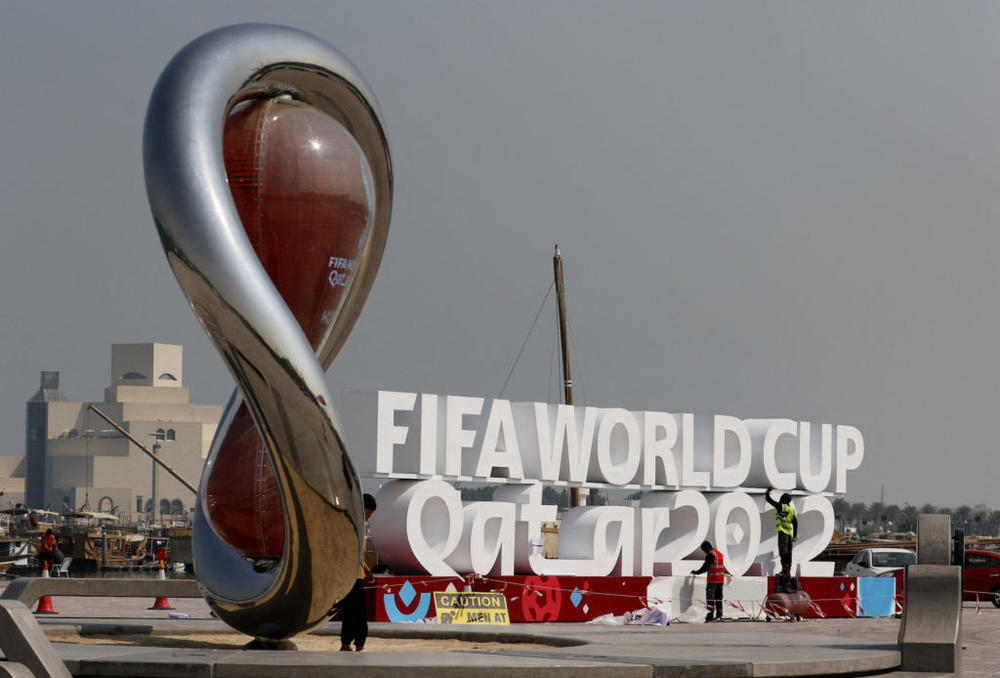
Story 4
Peter Biello: Some Georgia bars and restaurants are deciding whether or not to open a little earlier this Sunday because of the World Cup. The match is expected to draw soccer-loving crowds. But the 10 a.m. start time, combined with varying laws across the state about drinks on Sunday, has some questioning its value. GPB's Orlando Montoya spoke with Evan Jones, the manager of Macon's Barefoot Tavern.
Orlando Montoya: And so you guys are going to be open on Sunday. Are you normally open that early?
Evan Jones: We're not normally open that early, no, sir. We're opening specifically because of the World Cup.
Orlando Montoya: And what are you expecting? You've seen these crowds before. You've had several weeks to know what the crowds are going to be like. What do you expect?
Evan Jones: A celebration, honestly. We get pretty full around the bar area. So we are an Irish pub, we're a gastro Irish pub serving alcohol and food with plenty of beers on taps. And, you know, any cocktail they want. Plenty of TVs, as well as surround sound. So every TV will be turned to the World Cup. Every seat will be available for those who are here to come and party with us, you know, for that event. And yeah, basically just a crowd of fans and a good time.
Orlando Montoya: And how does it work on Sunday? I know we have different laws in different areas, and that's what I'm finding out. Some places can be open at that hour on Sunday and some places not.
Evan Jones: Yeah, that's true. Actually, your typical Sunday most are going to open up around 11:00 for brunch. Right. So bottomless mimosas, you know, things along those lines. Because of the World Cup itself, we're opening up specifically for that crowd, still offering, you know, bottomless mimosas and the normal brunch that we would typically do, but ideally for a far larger crowd.
Peter Biello: France and Argentina will face off in the final match from Qatar on Sunday.
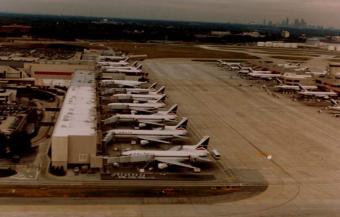
Story 5
Peter Biello: And finally, nearly 5.2 million passengers are expected to travel to from or through ATL from today through Tuesday, Jan. 3. And which day do you suppose is projected to be the busiest travel day at the airport? That is today, with 308,186 passengers expected. Passengers are advised to arrive at the airport at least two and a half hours before their scheduled departure for domestic flights and 3 hours in advance of international flights. So here are some tips to ensure a smoother travel experience. Check ATL.com for flight information, parking availability, directions, security wait times and concessions options. The TSA has an app called My TSA that provides passengers with answers to the most frequently requested airport security information. Just a reminder that you can pre-book airport parking online. Carry an empty water bottle through security and fill it up at a water station in the terminal. Also, toss a power strip in your bag to ensure you can always find a plug to charge your devices. To avoid losing presents, consider tracking your luggage with GPS by packing a portable tracking device or shipping the presents ahead of time. And if you need a moment of quiet reflection away from the hustle and bustle, there is an interfaith chapel located both above the main security atrium and in Terminal E. These are just some suggestions, but it's not a full list. I'm sure you have suggestions on how to make travel through ATL a little bit easier. You can send them to us along with your feedback about the show in general by email. The address is GeorgiaToday@gpb.org.
And that's it for today's edition of Georgia Today. Thank you so much for tuning in. I'm Peter Biello. Have a great weekend.

